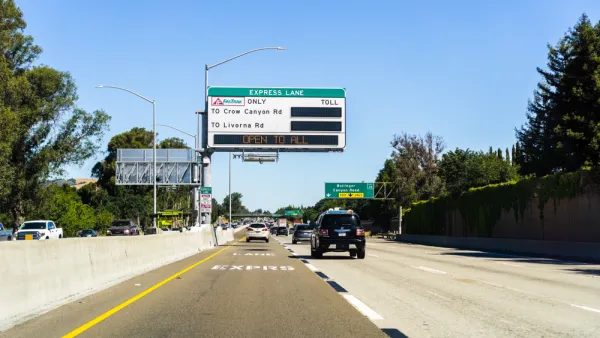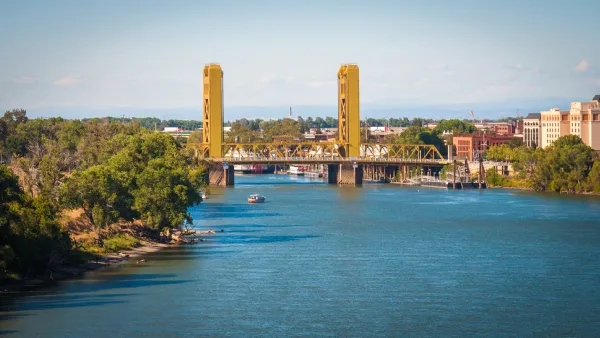Irvin Dawid discovered Planetizen when a classmate in an urban planning lab at San Jose State University shared it with him in 2003. When he left San Jose State that year, he took with him an interest in Planetizen, if not the master's degree in urban & regional planning.
As a long-time environmental activist, he formed the Sustainable Land Use committee for his local Sierra Club chapter and served six years on the Bay Area Air Quality Management District’s Advisory Council from 2002-2008. He maintains his interest in air quality by representing Sierra Club California on the Clean Air Dialogue, a working group of the Calif. Environmental Dialog representing business, regulatory and public health/environmental interests.
Major interests include transportation funding, e.g., gas taxes, vehicle miles traveled (VMT) fees, road tolls and energy subsidies that lead to unlevel playing fields for more sustainable choices.
He hails from Queens (Bayside) and Long Island (Great Neck); received an AAS in Fisheries & Wildlife Technology from SUNY Cobleskill and a B.S. from what is now Excelsior College.
After residing for three years on California’s North Coast, he’s lived on the San Francisco Peninsula since 1983, including 24 years in Palo Alto. Home is now near downtown Burlingame, a short bike-ride to the Caltrain station.
He’s been car-free since driving his 1972 Dodge Tradesman maxi-van, his means to exit Long Island in 1979, to the junkyard in 1988.
Major forms of transportation: A 1991 'citybike' and monthly Caltrain pass, zone 2-2. "It's no LIRR, but it may be the most bike friendly train in America."
Irvin can be reached at [email protected]

Massachusetts Legislators Fear Hidden Gas Tax in Transportation and Climate Initiative
Gov. Charlie Baker (R) supports a multi-state proposal to mitigate tailpipe emissions that would increase gas prices and pay for transit projects in an $18 billion transportation bond. A bill has been introduced to ensure that doesn't happen.

2019 Year-End Census Estimate: Slowest Growth in 100 Years
The 12-month period ending July 1, 2019, saw the lowest population growth rate, 0.5 percent, since 1918, reported the U.S. Census Bureau on Monday. Natural increase (births minus deaths) was the lowest in decades. Ten states saw population declines.

More Toll Lanes Coming to California Freeways
Solo drivers in the Golden State will have more options to escape traffic congestion on busy freeways – for a price, as transportation agencies increasing decide to convert existing carpool lanes to high-occupancy toll lanes and add new ones.

Why Is It Taking So Long for California's Population to Reach 40 Million?
It was thought that California's population would reach 40 million two summers ago, but growth continues to slow, setting records. Net migration, which includes domestic and international movement, was negative for the first time since 2010.

East Coast Considers Plan to Hike Gas Prices to Mitigate Climate Change
Will a dozen East Coast states and D.C. agree to a regional plan that would likely hike gas prices through a "cap-and-invest" program to mitigate tailpipe emissions similar to what California has done for the last five years?

























